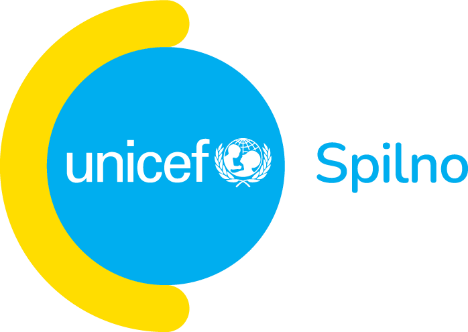She worked on the development of new means for the prevention and treatment of diabetes and was preparing to write her Ph.D. dissertation. She now volunteers at a humanitarian center and participates in public work to help displaced people like herself. This is about Olga from Kharkiv. Olga, an employee of a research institute, left Kharkiv with her husband and schoolboy son at the beginning of March and is now living in Zhovkva, Lviv region.
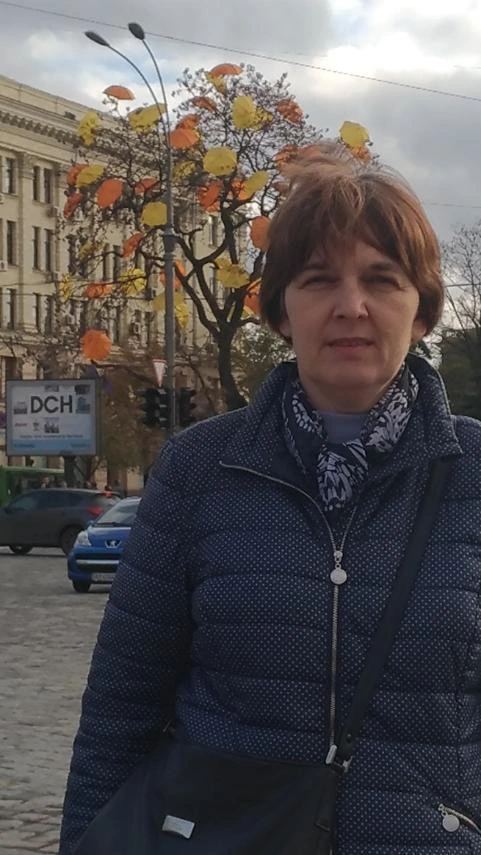
She says: before the start of the full-scale war, she had already understood that there was a real threat from Russia, but common sense insisted that such a thing could not happen in the 21st century.
"On February 23, after putin's speech, I felt that this was the kind of point of no return. My husband and I went to the store, bought a small supply of food, packed our suitcases... When we woke up, we could already hear explosions. During the first days, we hid in a bomb shelter, but we still hoped that it would all be over in two, three, five, ten days. However, unfortunately, it just didn't end," recalls Ms. Olga.
Then the invaders started shooting at residential buildings, shelling Northern Saltivka very heavily. The family's house was located between Northern Saltivka and the Pʼiatykhatky neighborhood unit. With the situation already becoming too dangerous to stay, the family finally decided to leave. The fact that there was no electricity, water, or heating in the house only added to the arguments supporting the decision.
"I was particularly struck by the fact that once, when we were still moving from time to time to the apartment from the basement, I saw a round hole in the ground that had not been there before. It became clear that something had "flown" here and had been removed quite quickly."
We had to walk to the railway station because the urban public transportation within the city had totally ceased to work. Luckily, there were people around who told us that the railway station was working and trains were running. We wouldn’t have known about it otherwise because there was no public communication or internet. The television had also been down since the first day of the invasion.
"There were a lot of people there standing at the railway station, standing in lines on the platforms. But once you have already decided to go, you must go. We took the first available train. I noticed that people had started moving somewhere, so it meant that some train had arrived. It turned out to be the "Kharkiv – Lviv" train. Well, let it be Lviv then," says Ms. Olga.
Internally displaced persons were welcomed in Lviv. The volunteers directed them to the Arena Lviv. They were registered there, and from there everyone was sent to communities that hosted people and settled them in schools.
At first, they lived in classrooms, but then managed to move to an individual apartment.
Ms. Olga continues to do her job at the moment - she is working remotely. But when they had just arrived, it was not clear whether there would be any job whatsoever.
"We had to switch from that horror to some business. However, all household chores had been left in Kharkiv. I couldn't find any consolation, we were just sitting and reading the news – what would be hit during the next shelling. Local residents suggested that we could join volunteer work. So we went to weave camouflage nets for the military men", the woman recalls.
Then the family had to apply to the humanitarian headquarters because they had only managed to take very few things from home.
"The work of the headquarters was very well organized in Zhovkva. They brought many goods within the frame of humanitarian aid from Europe. So I got everything I needed - clothes, bed linen, and food… that was when I asked, maybe they need some help. Yes, it turned out that assistance was needed. We sorted things, which were then distributed to the internally displaced persons. I got used to it over time, I like to communicate with people and I feel that I can be helpful. That I make some contribution to the victory. People need help. We are looking for different ways to meet the needs of the internally displaced people, we are writing letters to international organizations," says Ms. Olga.
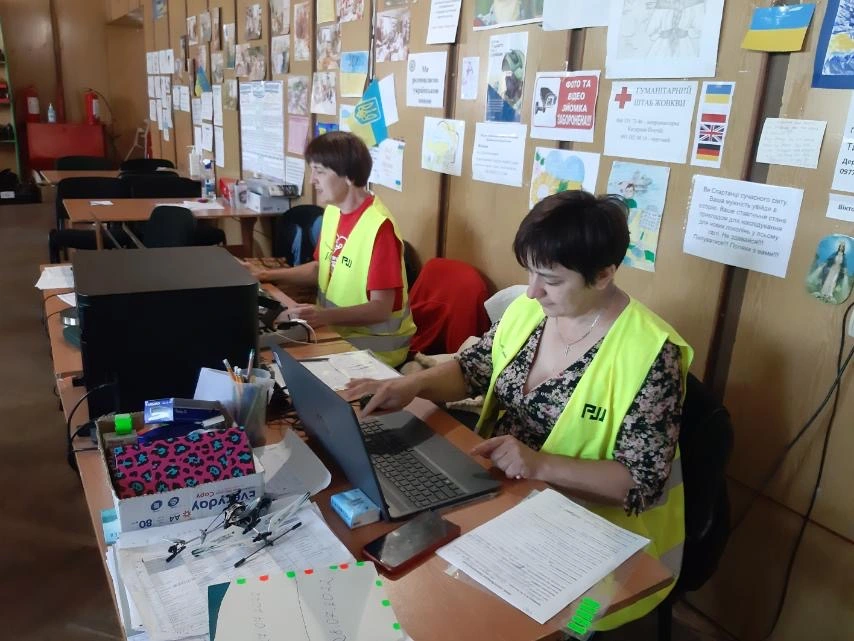
And although she has less time for volunteering due to the resumption of her work, she still tries to come to the headquarters regularly.
In addition, Olga participates in various events held by public organizations. As a displaced person, she knows exactly where and what kind of help is needed, and how to set up certain processes.
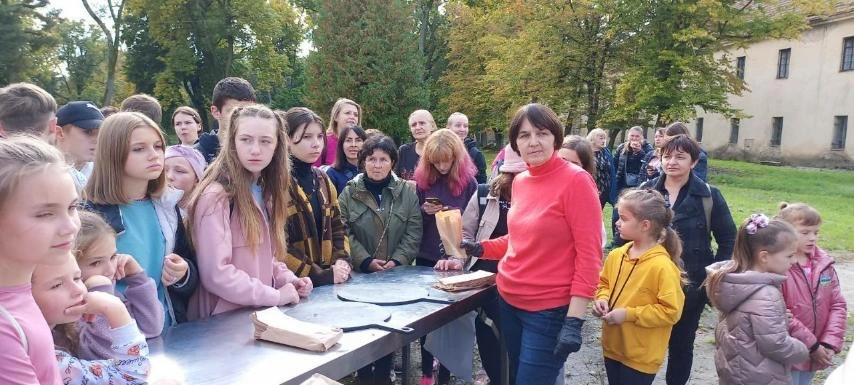
Despite the enormous number of events, she notes: life in Lviv Region flows in a different way compared to Kharkiv - more measuredly and calm. But still, the plan is to always return home.
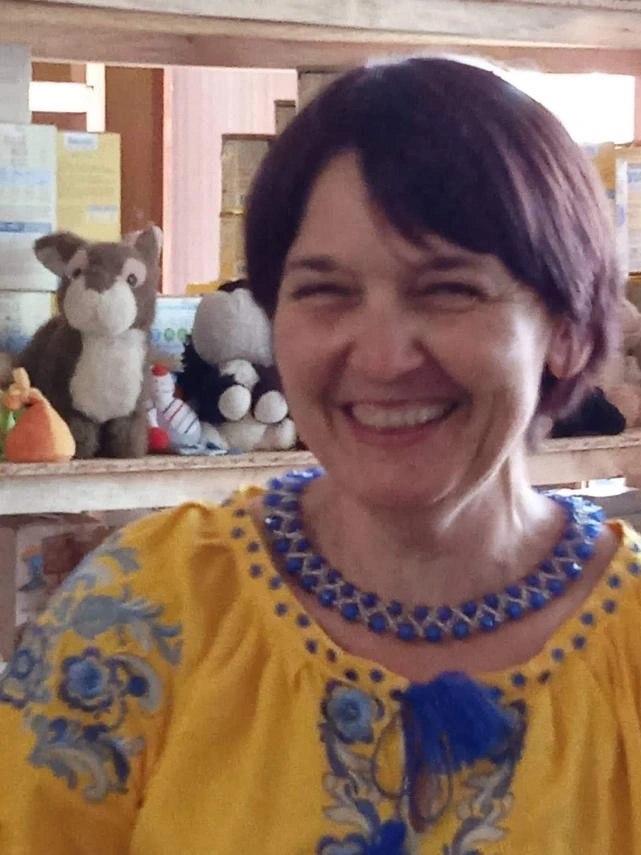
"We have our house there, our home. Therefore, we believe that the war will end with our Victory. As soon as the situation improves, we shall return," Olga says.
